Programmes
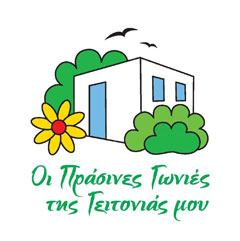
It was launched in 1999 and addressed to schools of all educational levels. Its aim was to encourage pupils to adopt green spaces in their local area and to raise awareness by learning about the flora and fauna of the urban environment. In 2006 it was approved by the Ministry of Education as an Environmental Education Network.

It was launched in 1996 as an environmental awareness programme following an action entitled “No littering in nature”. In 2006 it was approved by the Ministry of Education as the “Nature without Garbage” Environmental Education Network.
Projects & Actions
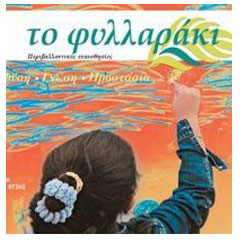
“The Leaflet” was a 34-page magazine aimed at teachers. It started in 2005 and continued with an average of 2 issues per year until 2011, when it ceased print publication. It became the buddy of all the teachers who embraced it and transferred in its pages experiences, information, messages for the protection of the environment, from and to every corner of Greece.

In 2018, the HSPN utilized part of the donations given in Konstantinos Mitsotakis’ memory, in order to create the Botanical Garden of medicinal and aromatic plants of Creta, in collaboration with the Holy Monastery of Chryssopigi in Chania.
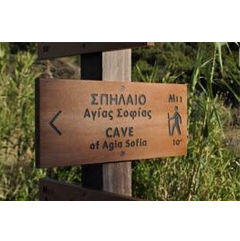
“The Trip for the Regeneration of Kythera has started…” was a project about the rehabilitation of the island after the fire that took place in August 2017 in Kythera. The fire caused great natural damages, as significant forest areas were burnt. In order for the island of Kythera to be restored, the Hellenic Society for the Protection of Nature signed a Cooperation Memorandum with the Kythera and Antikythera Domestic Property Committee, and in collaboration with the Institute of Mediterranean Forest Ecosystems (IMDO) of ELGO-Demetra, aimed at implementing a set of actions both for the prevention of forest fires and for the post- fire restoration of the Kythera Island.
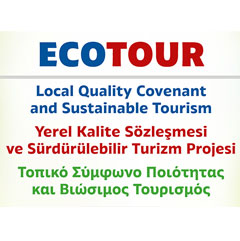
A 12-month project that was implemented as part of the “Town Twining Between Turkish and European Municipalities – Grant Scheme (TTGS)”. The action involved cooperation between the Municipality of Erdemli in Turkey and the Municipality of Parga in Greece, to promote an innovative model of sustainable tourism that protects and encourages cultural identity, environmental protection and conserves natural resources.

The 2-year SocioCoast project is implemented within the framework of the cooperation Programme INTERREG V-A Greece-Cyprus and funded by the European Regional Development Fund and national sources in Greece and Cyprus. The main goal of the project is to increase attractiveness of the targeted beaches and coastal areas, in both countries, through an improved and more complete information system addressed to the public which will include data related to the natural environment of the areas.
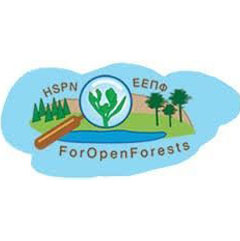
The Project LIFE11 NAT/GR/001014 ”ForOpenForests” was co-financed by the European Union Life Financial Instrument from September 2012 to November 2019. The HSPN was the coordinating beneficiary of this 5-year LIFE+ project for the protection of priority habitats and species in two Natura 2000 sites on Mts Oiti and Kallidromo of Central Greece.
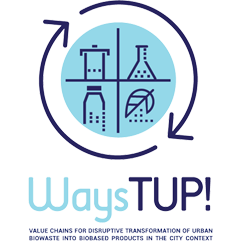
The project “WaysTUP!” has a duration of 42 months and is funded by the Horizon 2020 Programme. The project is about turning urban biowaste into biobased products. Being a component of circular economy, the focus is on turning urban biowaste into a recourse to be used again.
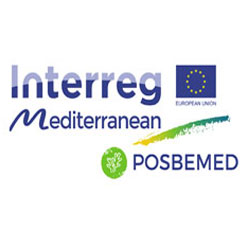
INTERREG MED project “POSBEMED” (2016-2018): the EEA participated as a collaborating partner in the 15-month project, whose objective was to investigate the management, conflicts and opportunities in Mediterranean coastal protected areas where Neptune grasslands and deposits exist and to formulate a strategy for their more effective protection.
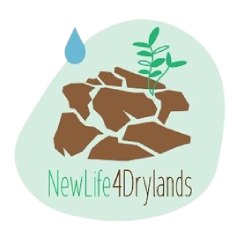
The Project LIFE20 PRE/IT/000007 ”NewLIFE4Drylands” is co-financed by the European Union Life Financial Instrument. The HSPN is a partner in this 3- year LIFE project, aiming to monitor the application, scalability and replication of Nature-Based Solutions (NBS) for restoration of degraded and desertified drylands.
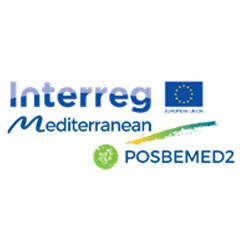
The project “POSBEMED2 – Governance and management of Posidonia beach-dune systems across the Mediterranean” is conducted under the programme InterregMED, has a duration of 32 months, started in November 2019 and it is co-financed by the European Regional Development Fund. It is the continuation of the previous project “Posbemed”, in which the Hellenic Society for the Protection of Nature was an associated partner.

A 15-month project that was implemented as part of the “Civil Society Dialogue between EU and Turkey – IV Environment Grant Scheme (CSD-IV/ENV)”. Its goal was to inform civil society in Turkey, including relevant local and regional authorities, about flora conservation, focusing on terrestrial orchids.

The project “Ecological Understanding of Risks of the Environment through a deeper Knowledge and Awareness – EUREKA”, has a duration of 24 months, is funded by the Programme Erasmus+ and is implemented in Greece, France, Italy and Turkey. In that project both schools of secondary education and environmental NGOs are involved, as a cooperation pattern. The lead partner in the project is the french instituion Alpes de Lumière.
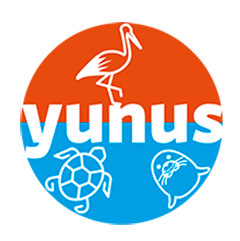
A 24-month project co-funded by the European Union and the Republic of Turkey under the scope of “Civil Society Dialogue between EU and Turkey”. The overall objective of the programme was to bring together civil society organisations from Turkey and the EU around common topics, to exchange knowledge and experience, and to build a sustained conversation between the organisations.

HSPN participated as partner in the implementation of the 15-month project “Ancient Cities for Endemic Flora, From Apollo to Athena – A2A”, in the framework of the Programme Supporting Civil Society Dialogue Between EU and Turkey. Archaeological sites host important, often endemic and/or rare, species of local flora, which usually survive there because of the relative protection offered in relation to the surrounding, heavily developed areas.

The Project LIFE14 GIE/GR/000024 ”LIFE Natura Themis” was co-financed by the European Union Life Financial Instrument. The HSPN was a partner in this 5-year LIFE+ project, aiming to establish that environmental crime and damage to biodiversity are specific criminal acts, liable to prosecution and punishment, especially in Natura 2000 sites, according to the Environmental Liability Directive.




